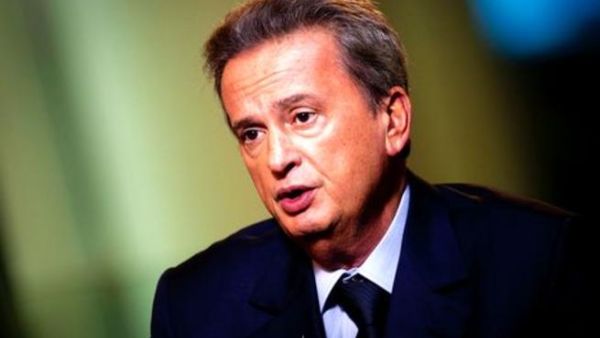The government should pay the salary scale in installments to ease pressure on the treasury’s finances and avoid inflation, Central Bank Governor Riad Salameh said Sunday evening. Salameh is expected to attend this Wednesday’s Cabinet session which will discuss recent proposals to finance the salary scale.
Salameh, who will only play an advisory role, told Al-Jadeed TV station that the Central Bank will submit several reports to assess the impact of the salary scale, if approved, on the monetary and economic situation.
The governor, however, refused to disclose any details about the Central Bank’s assessment of the salary scale ahead of the Cabinet session.
The Cabinet has agreed in principle to raise certain taxes that should not affect limited-income families.
Among the proposals mulled by the Finance Ministry are raising taxes on profits of real estate transactions, slapping taxes on illegal sea resorts, higher taxes on luxury goods such as tobacco and alcoholic beverages and raising taxes on interest on customer deposits from 5 to 7 percent.
However, some economists say the taxes may be insufficient to fund the salary hike, which would cost the Treasury $1.5 billion a year, forcing the government to borrow an additional $1 billion from the local market through the issuance of new Treasury bills.
Salameh said in his televised interview that the Central Bank had initially advised the government to adjourn the endorsement of the salary scale until Lebanon weathers the economic slowdown inflicted by regional turmoil and local political instability.
“But since the government is set to endorse the salary scale, it is better to pay it in installments,” he said, urging political leaders to strengthen the role of state institutions in a bid put the economy back on the growth track.
Despite alarming economic indicators including dropping tourism revenues and foreign direct investments, Salameh dismissed concerns over the stability of exchange rates of the Lebanese pounds.
“There are no concerns over the stability of exchange rates of the Lebanese pound ... it has been stable and will remain so,” Salameh said, highlighting that the Central Bank’s foreign assets stand at a record high of $35 billion, excluding gold reserves of $16 billion.
Salameh added that Lebanese banks enjoy high liquidity in foreign currency, which supports the stabilization of exchange rates of the Lebanese pound.
Higher interest rates on treasury bills are also encouraging banks to invest in them compared to bonds in dollar-denominated currencies that pay half the interest rate, Salameh said.








